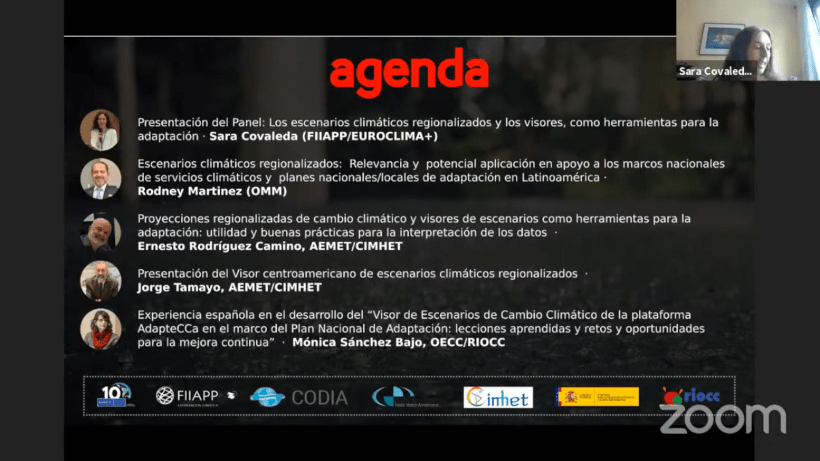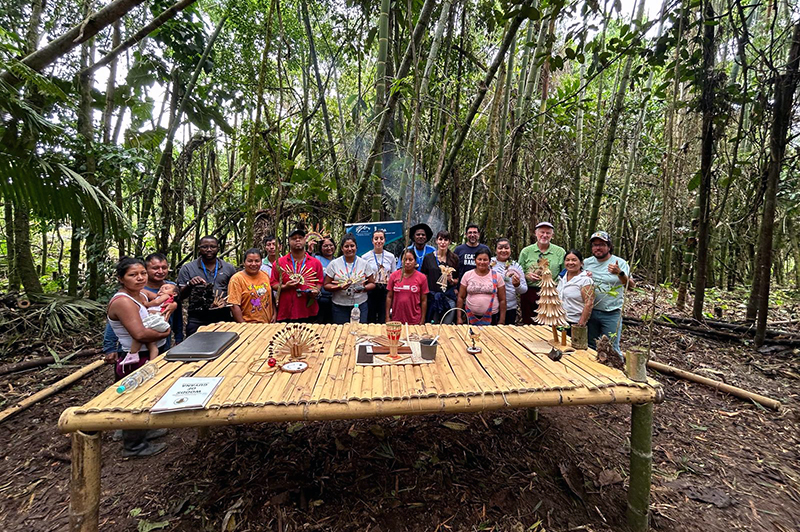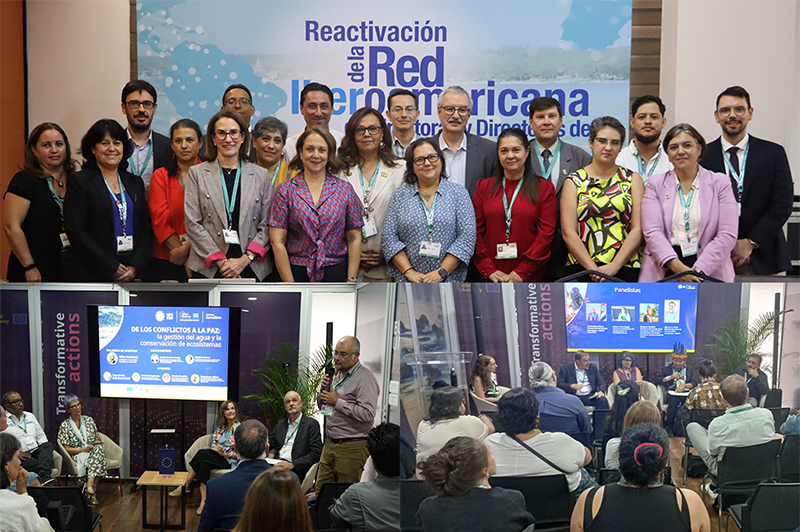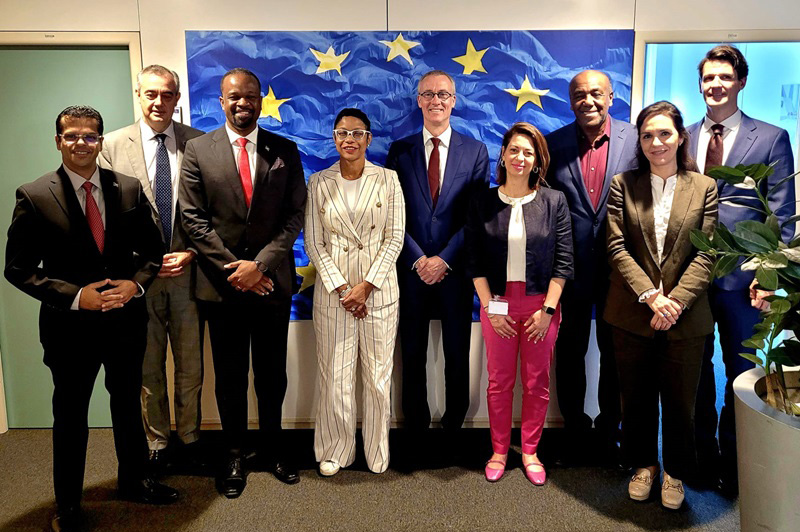A meeting between the Ibero-American meteorological networks highlighted the importance of having climate projections adapted to the territories and presented experiences developed in the region.
Madrid, 24 July - On Thursday July 23, a virtual meeting hosted the main Ibero-American cooperation networks on climate, meteorology and water: the Ibero-American Network of Climate Change Offices (RIOCC), the Ibero-American Conference of Directors of Meteorological Services (CIMHET) and the Conference of Ibero-American Water Directors (CODIA).
The objective of the session was to present and discuss the development of tools in the field of adaptation to climate change that can promote the implementation of action-oriented public policies, their usefulness, the best practices necessary for the interpretation of information and the challenges and opportunities offered by these tools for the practical application of technical knowledge in climate action.
The meeting was attended by Rodney Martinez, from the World Meteorological Organization (WMO), Ernesto Rodríguez Camino from the Spanish State Agency for Meteorology (AEMET)/CIMHET, Mónica Sánchez Bajo from the Spanish Office for Climate Change (OECC)/RIOCC, Jorge Tamayo, AEMET/CIMHET and Sara Covaleda, from the International and Ibero-American Foundation for Administration and Public Policy (FIIAPP).
THE IMPORTANCE OF REGIONALISED CLIMATE SCENARIOS
In order to formulate adaptation and mitigation strategies in line with regional realities, it is essential to estimate the risks that climate change may pose to natural systems and the various socio-economic sectors, thus ensuring the capacity to anticipate its impacts and adopt appropriate adaptation measures to alleviate its consequences.
One basic tool for the development of this knowledge is the so-called climate change projections: plausible descriptions of the future evolution of the climate that are obtained from simulations with climate models, applying different scenarios of greenhouse gas emissions, that is, different possibilities of future evolution of these gases during the next decades.
There is also a need for climate change information to be timely, accurate, accessible and geared to the needs of different types of users, regardless of their technical capabilities. The development of tools such as climate change scenario viewers responds to the need to communicate scientific knowledge to all actors involved in adaptation, facilitating consultation, visualisation and access to information on climate projections.
Along these lines, Rodney Martinez (WMO) highlighted the importance of regionalized climate scenarios for strengthening national frameworks for climate services and national/local adaptation plans in Latin America. He also highlighted the efforts that the countries of the region are making in the development of scenarios adapted to their territorial needs.
On the other hand, Ernesto Rodríguez Camino (AEMET/CIMHET) addressed the role of data in the generation of regionalised scenarios, pointing out the relevance of having visualisation tools that allow a plausible reading for the multiplicity of stakeholders: economic sectors, media or public institutions. From his experience at the head of the Climate Modelling and Assessment Area of AEMET, he highlighted some best practices to be taken into account in the interpretation of meteorological data.
CLIMATE SCENARIO VIEWER
During the meeting, two experiences of climate data interpretation tools were presented, designed to show climate change projections from global models adapted to local contexts, in Spain and Central America. Jorge Tamayo (AEMET/CIMHET) presented the Regionalised Scenario Viewer for Central America that they have developed in collaboration with FIIAPP, SICA's CRRH and the meteorological services of the six Central American countries -Guatemala, El Salvador, Honduras, Costa Rica, Nicaragua and Panama-, and which currently hosts Centro Clima, a Central American regional platform for climate information. For her part, Mónica Sánchez Bajo, (OECC/RIOCC) presented the Spanish experience in developing the “Climate Change Scenario Viewer of the AdapteCCa platform” within the framework of the National Adaptation Plan, which has served as the basis for the Central American Viewer, developed within the framework of the EUROCLIMA+ programme in collaboration with the Spanish Meteorological Agency.
About EUROCLIMA+
EUROCLIMA+ is a programme financed by the European Union to promote environmentally sustainable and climate-resilient development in 18 Latin American countries, particularly for the benefit of the most vulnerable populations. The Programme is implemented under the synergistic work of seven agencies: the Spanish Agency for International Development Cooperation (AECID), the French Development Agency (AFD), Economic Commission for Latin America and the Caribbean (ECLAC), the German Society for International Cooperation (GIZ), Expertise France (EF), International and Ibero-American Foundation for Administration and Public Policy (FIIAPP), and UN Environment.
Contacts
Contact for EUROCLIMA+ / FIIAPP Daniel Fernández: This email address is being protected from spambots. You need JavaScript enabled to view it.




